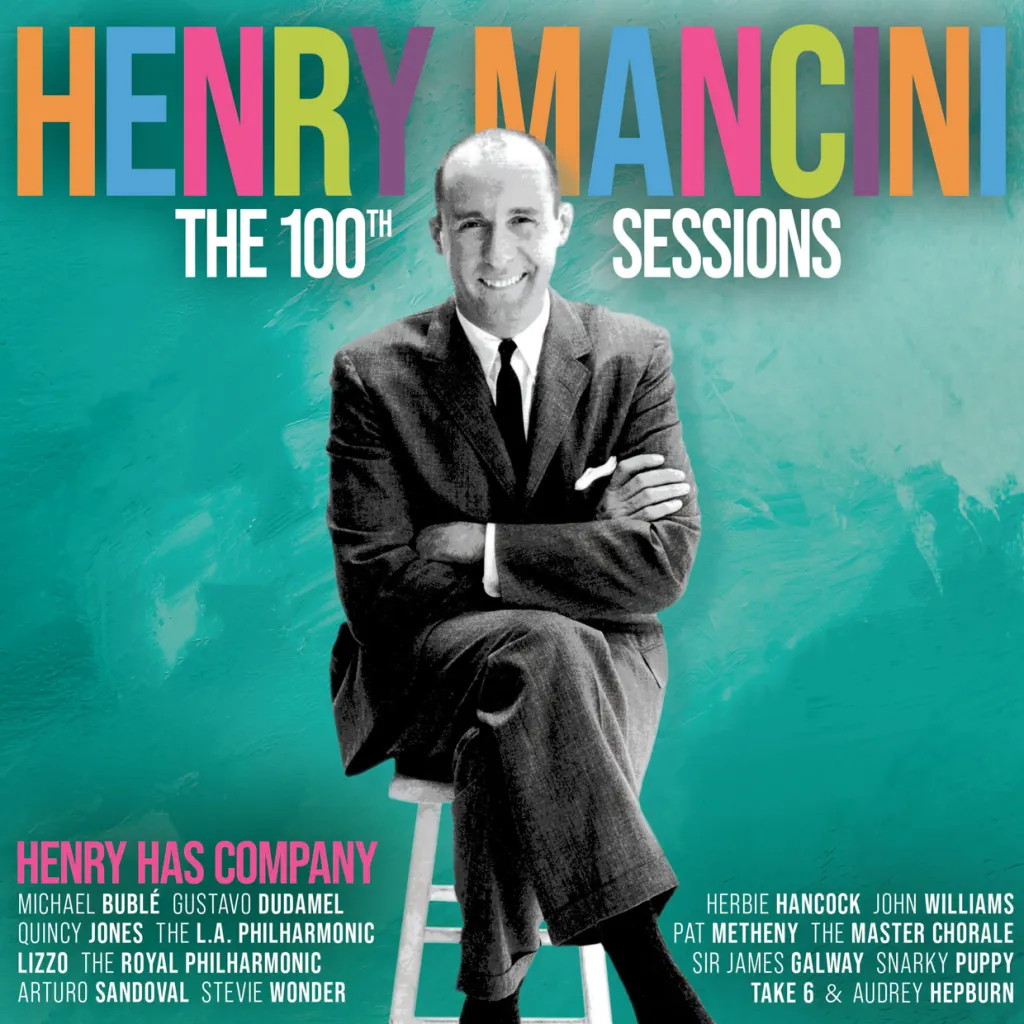Introduction
Henry Mancini (1924-1994) was an American composer, conductor, and arranger, best known for his work in film and television scoring. Mancini’s music is characterized by its sophisticated melodies, innovative orchestration, and versatility across genres. Over his career, he composed some of the most memorable and iconic themes in entertainment history, including “The Pink Panther Theme,” “Moon River,” and “Peter Gunn.” Mancini’s work has had a lasting impact on both the film industry and popular music, establishing him as one of the most influential composers of the 20th century.
Early Life and Career Beginnings
Early Life
Enrico Nicola “Henry” Mancini was born on April 16, 1924, in Cleveland, Ohio, and raised in West Aliquippa, Pennsylvania. He began his musical training at an early age, learning the flute and piano. After high school, Mancini attended the Juilliard School of Music in New York but left after one year to join the U.S. Army Air Forces during World War II. After the war, he furthered his music studies and began working as an arranger for big bands, including Glenn Miller’s Army Air Force Band.
Career Beginnings
Mancini’s career in film scoring began in the early 1950s when he joined Universal Pictures as a staff composer and arranger. He worked on numerous films during this period, often contributing uncredited arrangements and compositions. His big break came with the 1954 film The Glenn Miller Story, for which he provided the arrangements, earning his first Academy Award nomination.
Rise to Fame
“Peter Gunn” and the Birth of the Modern TV Score
Mancini’s work on the television series Peter Gunn (1958-1961) was groundbreaking, blending jazz with orchestral elements to create a distinctive, modern sound. The “Peter Gunn Theme” became an instant classic, and the soundtrack album won the first-ever Grammy Award for Album of the Year in 1959. This success established Mancini as a leading composer in Hollywood and set the stage for his subsequent work.
“Breakfast at Tiffany’s” and “Moon River”
In 1961, Mancini composed the score for Breakfast at Tiffany’s, directed by Blake Edwards. The film’s theme song, “Moon River,” with lyrics by Johnny Mercer and performed by Audrey Hepburn in the film, became one of the most beloved songs of the era. “Moon River” won the Academy Award for Best Original Song and became a standard in American popular music. The soundtrack’s success solidified Mancini’s reputation as a master of melody and mood.
Musical Style and Innovations
Versatility Across Genres
Henry Mancini was known for his ability to blend different musical styles, including jazz, classical, pop, and Latin music, into his scores. His arrangements often featured innovative orchestration, with a strong emphasis on melody and rhythm. Mancini’s music was accessible yet sophisticated, appealing to both casual listeners and serious music aficionados.
Memorable Themes and Melodies
Mancini had a unique talent for creating memorable and instantly recognizable themes. His music often became as famous as the films and shows for which it was composed. The “Pink Panther Theme” (1963), for example, became one of the most iconic pieces of music associated with film, transcending its original context to become a cultural phenomenon.
Major Works and Hits
- “Peter Gunn” (1958-1961): The jazzy “Peter Gunn Theme” became one of Mancini’s most famous compositions and a staple of television music.
- “Breakfast at Tiffany’s” (1961): Featured the Academy Award-winning song “Moon River,” which became a classic standard.
- “The Pink Panther” (1963): The playful and instantly recognizable “Pink Panther Theme” is one of Mancini’s most enduring works.
- “Days of Wine and Roses” (1962): The title song, another collaboration with Johnny Mercer, won the Academy Award for Best Original Song.
- “Charade” (1963): A sophisticated score that showcased Mancini’s ability to blend suspense and romance.
- “The Thorn Birds” (1983): A television mini-series score that earned Mancini an Emmy Award, highlighting his versatility across different media.
The Henry Mancini 100th Sessions: Henry Has Company:
The official YouTube channel of the legendary Henry Mancini:
https://www.youtube.com/@officialhenrymancini/featured
Impact and Legacy
Influence on Film and Television Music
Henry Mancini’s work helped to define the sound of American film and television in the 20th century. His use of jazz elements in orchestral settings was innovative and set a trend for future composers. Mancini’s ability to create memorable, thematic scores influenced generations of film and television composers, including John Williams, Jerry Goldsmith, and Quincy Jones.
Cultural Impact
Mancini’s music transcended the films and television shows for which it was written, becoming part of the broader cultural landscape. Songs like “Moon River” and the “Pink Panther Theme” became standards, covered by countless artists and ingrained in the public consciousness. His music continues to be performed, recorded, and celebrated worldwide.
Awards and Recognition
- Academy Awards: Mancini won four Academy Awards, including Best Original Song for “Moon River” and “Days of Wine and Roses,” and Best Original Score for Breakfast at Tiffany’s and The Pink Panther.
- Grammy Awards: Mancini won 20 Grammy Awards throughout his career, including Album of the Year for The Music from Peter Gunn.
- Golden Globe Awards: Mancini received two Golden Globe Awards for his contributions to film music.
- Hollywood Walk of Fame: Mancini was honored with a star on the Hollywood Walk of Fame for his contributions to the music industry.
Ongoing Influence
Mancini’s work remains influential in both the film industry and popular music. His compositions are still widely performed and recorded, and his scores continue to inspire new generations of musicians and composers. His legacy is celebrated in film music concerts and retrospectives, ensuring that his contributions to music and cinema are not forgotten.
Later Years and Death
In the later years of his career, Mancini continued to work on film scores, television projects, and concert performances. He collaborated with some of the biggest names in the music industry, including Frank Sinatra and Ella Fitzgerald. Mancini passed away on June 14, 1994, but his music continues to live on, celebrated by fans and musicians alike.


Leave a Reply